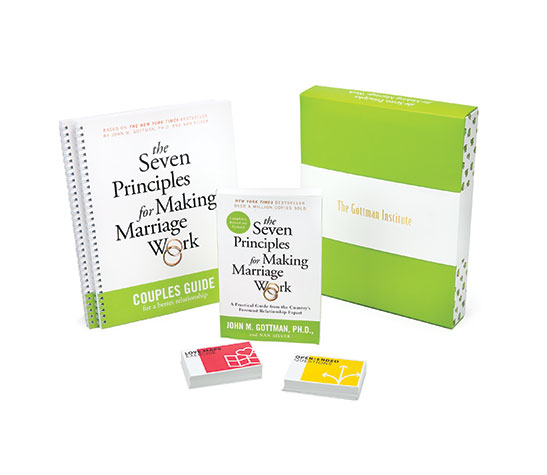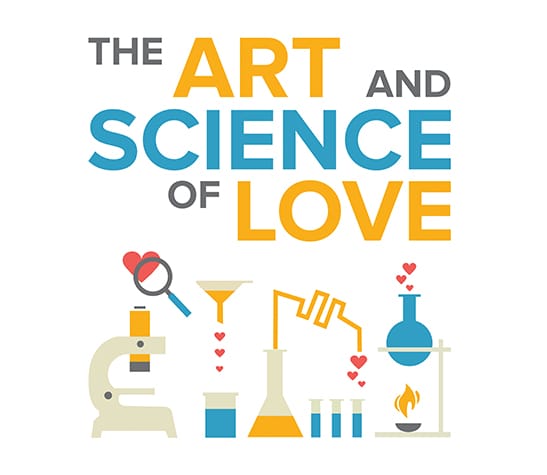Ongoing relationship distress is harmful to each romantic partner’s mental1 and physical wellbeing,2 and in addition, can negatively impact the kids.3</sup
We all know this.
Difficult conflict can lead to things being said that hurt us at our core. The growing emotional distance can leave us feeling like we are stranded on a boat in the middle of an ocean—desperate for connection, safety, and security.
The lack of commitment and trust perpetuates toxic interactions that push us farther away from each other, rather than building a bridge back to one another.
Fortunately, empirically-based couples therapy has demonstrated that couples therapy can create a positive change for 70% of couples. And these changes actually last.
However, couples often do not seek research-based solutions to improve their relationship.
Here are some facts:
- 31% of couples take a premarital relationship education program.5</sup
- Only 19% of couples actually seek out some form of couples therapy and only 37% of divorced couples worked with a professional prior to signing the papers.6</sup
- The average couple waits six years before seeking professional help for marital problems.7
Part of this may be due to the stigma against couples therapy. Below are just a few examples of this and how it can impact your relationship:
- Thinking that going to couples therapy means that we, as a couple, are not strong enough to work through issues on our own. That there is something inherently wrong in our marriage. It’s a shame game.
- Pretending the issues don’t exist and avoiding admitting and confronting problems that peek out of the closet in the relationship. Examples include nasty fights, emotional disconnection, or an affair.
- Convincing ourselves that the real problem is our partner. So why go to therapy when they are the reason this marriage sucks? (Hint: Every relationship requires two people and so inevitably you are also involved).
- Believing the myth that “if love takes work, then it wasn’t meant to be.” A no-effort relationship is not a great relationship. It’s a doomed one. Dr. John Gottman says, “Every [relationship] demands an effort to keep it on the right track; there is constant tension…between forces that hold you together and those that tear you apart.”
I won’t hide the fact that bringing up difficult issues in couples therapy will be challenging, because it will be.
For example, a client mentioned that she was “overwhelmed with fear that bringing up issues in therapy would only make things worse,” highlighting her conflict-avoidant style, but as the sessions went on and she began to experiment with bringing up more issues, she indicated, “it was like a weight being lifted off my shoulders. It’s nice not having to carry the burden alone.” And when both partners do their part and remain committed to the process and the relationship, the results of therapy may create a better relationship.8
Not pursuing couples therapy when there are underlying emotions and issues that are wreaking havoc on your relationship’s emotional connection and each partner’s wellbeing can create bigger and more serious obstacles to overcome in the future. It’s like a large boulder rolling out of control down a hill. The farther it rolls, the more damage it causes and the harder it is to push it back to the place it belongs.
So, how do you know when it’s time to go to couples counseling?
When To Pursue Couples Therapy
In the United States, 40-50% of all first marriages end in divorce.9 And second marriages have an even higher percentage of divorce ranging between 60-65%.10 Furthermore, some couples choose to stay married in an unhappy partnership due to financial reasons, children, or the shame of failure, among other reasons.
“Individuals at the crossroads of divorce can sometimes feel like they have to choose between two competing options. ‘Do I divorce so that I can find happiness again, or do I stay together for the family’s sake and remain unhappy?’ We think that is a false choice. There is good evidence to suggest that with the proper help and willingness on the part of both spouses, many marriages that might otherwise end in divorce can become healthy, vibrant, and supportive.”
– Hawkins, Fackrell, & Harris, Should I Try to Work it Out?
There are telltale signs that signal you and your romantic partner could benefit from couples counseling. These include:
- Escalating conflict and nasty communication habits.
- Emotional distance and loneliness.
- Falling out of love, i.e. “I love you, but I’m not in love with you.”
- Trust and commitment issues, such as difficulty relying on a partner or not putting each partners’ well being on par with each other.
- Attachment insecurities that are grounded in feelings of low self-worth and fears of abandonment. This can include extreme dependence, which leads to intrusive behaviors. But it can also include extreme independence which can make a partner feel like they’re not a priority.
- Feeling unsupported and emotionally dismissed or difficulty with opening up emotionally.
- Sexual intimacy is practically non-existent, there is a lack of desire, and/or it’s rarely talked about.
- Difficulties with in-laws, friendships, work, or life stressors including health issues.
- Abuse, affairs, and addictions (alcohol, drugs, porn, etc.)11
- Differences in parenting styles that lead to conflict.
- Mismanagement and disagreement on finances.
- Things feeling unfair in the division of household chores.
- Untreated anxiety and depression issues that complicate things in the relationship.
- Unequal decision making.
- Difficult childhood upbringings that have emotionally wounded partners and make it difficult to trust your partner or stay engaged when conflict arises.
A well-trained couples therapist who seeks to deeply understand you and your partner can support you in implementing strategies and tools to change the way you communicate, as well as shift unhealthy dynamics in your relationship. They can help you bring forth difficult feelings in a vulnerable way that helps your partner see you better and helps create a recipe to win your heart.
And sometimes accessing these difficult feelings and shining a light on the underlying contributions to your relationship’s turmoil, may lead you both to decide to divorce, hopefully amicably. For highly conflicted couples, research indicates that this can be healthy.12
What if My Partner Won’t Go To Couples Therapy?
You can start by reading my article, 5 Steps to Inspire Your Partner to Join You in Attending Couples Therapy. If you’ve tried without success and your partner simply won’t go to couples therapy, you could attend The Art and Science of Love workshop instead or use the online relationship improvement tool for couples, the Gottman Relationship Adviser. While it’s not a substitute for therapy, it can help get your relationship back on track.
The other option for couples at the crossroads of divorce is to try Discernment Counseling, which is not couples therapy. Discernment Counseling was designed to work with the 30% of “mixed-agenda couples,” meaning one spouse wants to work on the relationship while the other is seriously considering divorce.13 The fact that survey research of divorced people indicates that half of divorced individuals wished they had made more of an effort to overcome marital challenges and avoid divorce makes Discernment Counseling worth considering.14
The goal of Discernment Counseling is to gain clarity and confidence in determining the future direction of the marriage based on a deep understanding of how the marriage got to this point and each spouse’s contributions to the issues. Discernment Counseling ranges between one to five sessions and ends with the decision to either keep the marriage as it is (status quo), to move forward with divorce, or commit to six months of couples therapy in an all-out effort with divorce off the table.
Prevention is Not Just For Premarital Couples
Typically couples who attend couples therapy are significantly distressed, unhappy, and emotionally hurting.
But this isn’t everyone.
As described in Divorce Prevention: The Light Switch of Love Dilemma, the best intervention for your relationship is prevention. Like getting a flu shot before getting the flu, attending couples therapy can help you build healthy relationship skills and habits that equip you with the tools to overcome issues that arise together.
The reality is, if you do nothing to improve your relationship over time, even if you aren’t doing something destructive, your relationship will decline. The same goes for your car, your house, and your teeth.
There are even therapists who offer an annual Couple Checkup to help you explore your relationship strengths and opportunities for improvement for the next year. Like a physical therapist, they examine how well your relationship functions and then offer exercises to help strengthen areas that could otherwise lead to more injuries if left untreated.
Shining a light on difficult relationship problems is not easy, but it can lead to addressing deeper issues that impact you and your partner’s mental and physical wellbeing.
1Whisman, M. (2007). Marital distress and DSM-IV psychiatric disorders in a population based national survey. Journal of Abnormal Psychology, 116, 638-643.
2Robles, T., Slatcher, R., Trombello, J., & McGinn, M. (2014). Marital quality and health: A meta-analytic review. Psychological Bulletin, 140, 140-187.
3Albrow, J., Measelle, J., Cowan, P., & Cowan, C. (2009). Linking marital conflict and children’s adjustment: The role of young children’s perceptions. Journal of Family Psychology, 23, 485-499.
4Lebow, J. L., Chambers, A. L., Christensen, A., & Johnson, S. M. (2012). Research on the treatment of couple distress. Journal of Marital and Family Therapy, 38(1), 145-168.
5Stanley, S., Amato, P., Johnson, C., & Markman, H. (2006). Premartial education, marital quality, and marital stability. Findings from a large, random, household survey. Journal of Family Psychology, 20, 117-126.
6Johnson, C., Stanely, S., Glenn, N., Amato, P., Nock, S., Markman, H., & Dion, M. (2002). Marriage in Oklahoma: 2001 baseline statewide survey on marriage and divorce (SO2096 OKDHS). Oklahoma City, OK: Oklahoma Department of Human Services.
7Gottman, J. M. (1994). What predicts divorce? The relationship between marital processes and marital outcomes. Hillsdale, NK: Lawrence Erlbaum Associates
8The reason I use the word may is because sometimes things will be shared that will be deal-breakers for one partner thus leading to the end of the relationship. Or one partner has already emotionally divorced the other and has no desire to work on the relationship. These couples are among the 30% of couples who therapy has not worked. See discernment counseling below for another path.
9Whitehead, B. D. (2007). The state of our unions 2007: The social health of marriage in America. Piscataway, NJ: National Marriage project (see pp. 18-19).
10Bramlett, M. D., & Mosher, W. D. (2002). Cohabitation, marriage, divorce, and remarriage in the United States. Vital and Health Statistics, 23(22).
11If these are actively happening in your relationship and your partner shows no remorse or willingness to change their behavior, then divorce may be the best option.
12Some research suggests that when individuals in high conflict marriages divorce, their happiness and wellbeing improves on average. Source: Amato, P. R., & Hohmann-Marriot, B. (2007). A comparison of high- and low-distress marriages that end in divorce. Journal of Marriage and Family, 69, 621-638.
13Doherty, W. J., Harris, S. M., & Wilde, J. L. (2016). Discernment Counseling for “Mixed-Agenda” Couples. Journal of Marital and Family Therapy, 42(2), 246–255.
14Hawkins, A. J., Fackwell, T. A., & Harris, S. M. (2013). Should I try to work it out? A guidebook for individuals and couples at the crossroads of divorce. CreateSpace Independent Publishing Platform.









